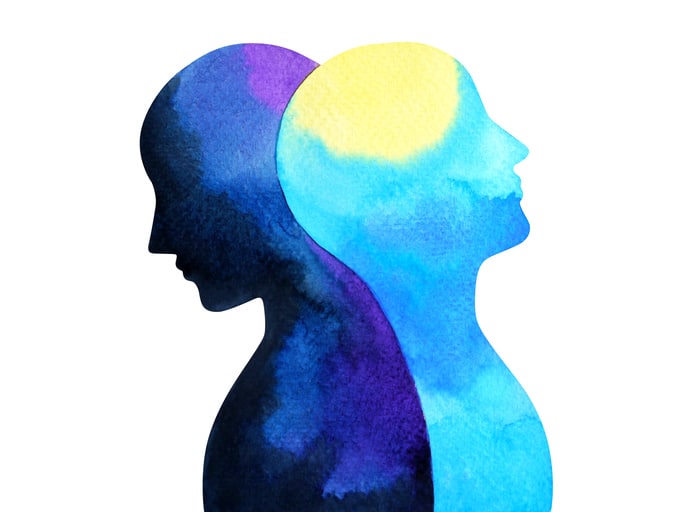Mood disorders and problematic substance use co-occur and confer reciprocal risk for each other. Few studies use analytic approaches appropriate for testing whether specific features of one disorder confer risk for the other.
445 participants (59.8% female, Mean age = 20.3 years) completed measures of depression and hypo/mania symptoms and substance use-related impairment; 330 had complete data at follow-up. Of these, 28% reported a history of depression, 4% of bipolar spectrum disorder, 11% of substance use disorder, and 55% reported substance-related impairment. Symptoms and domains of substance-related impairment were modeled in cross-sectional and cross-lagged panel network models.
Impulsive and interpersonal impairment were most highly comorbid with mood symptoms. Suicidal ideation, sadness, decreased need for sleep, and guilt were the symptoms most highly comorbid with impairment. Interpersonal impairment due to substance use was the strongest cross-construct predictor of mood symptoms and suicidal ideation was most predictive of impairment. Social, intrapersonal, and physical impairment due to substance use were most predicted by previous mood symptoms and decreased need for sleep, guilt, and euphoria were most strongly predicted by past impairment.
Measures do not assess all mood symptoms, participants with low reward sensitivity were excluded, only self-report measures were used, and some variables were single-items.
Components of these syndromes that confer cross-construct risk might not be the same components that are predicted by the other construct. The bidirectional relationship between mood symptoms and problematic substance use might be better conceptualized at the element, rather than diagnostic, level.
Copyright © 2020 Elsevier B.V. All rights reserved.
Mood symptoms and impairment due to substance use: A network perspective on comorbidity.


